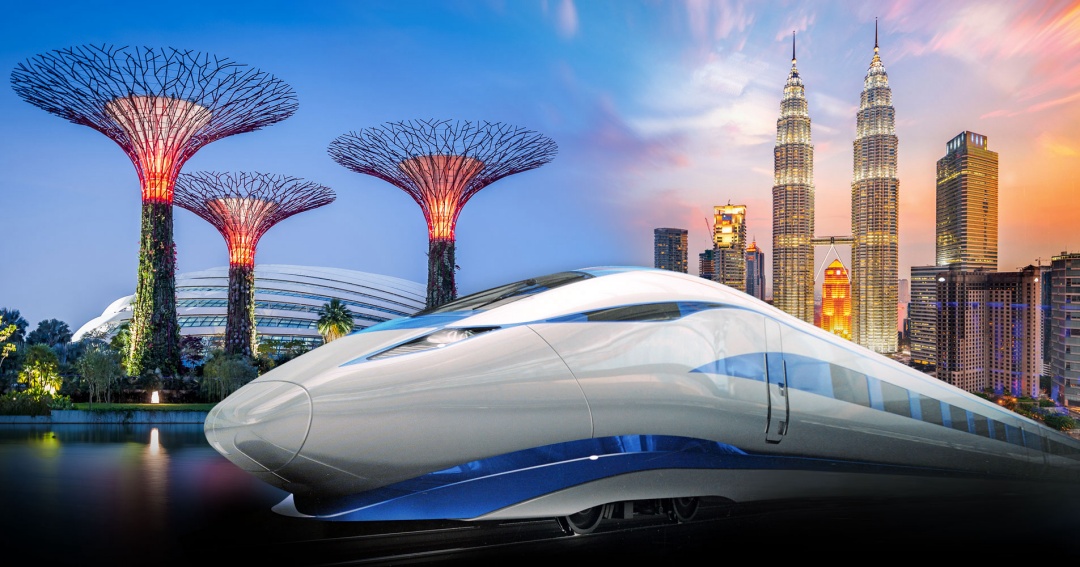Transport Minister Ong Ye Kung revealed in Parliament on Jan. 4 the reason for the termination of the Kuala Lumpur-Singapore High Speed Rail (KL-SG HSR) project.
Malaysia wanted to remove "the Assets Company, the system supplier and network operator of the HSR service," said Ong.
This was a neutral, best-in-class industry player, originally agreed by both countries to be appointed through an open and transparent international tender. The Assets Company will also have to be accountable to both the Singapore and Malaysian governments.
One track, two services
One feature of the commercial model agreed upon by both countries in 2016 is that there would be two types of rail service offered on the KL-SG HSR and they would be run by different operators.
The first is the domestic service running from Iskandar Puteri in Johor Bahru to Kuala Lumpur city.
The second — and the more important one to Singapore — is the cross border HSR service from Jurong East in Singapore to Kuala Lumpur city.
Under this commercial model, both operators will be overseen by a network operator, also known as the Assets Company.
Academics whom Mothership spoke to said that this commercial model is very important for Singapore.
Ensure SG-KL service won't be compromised
The domestic and cross-border services must be operated separately so that "operational issues within the domestic operation in Malaysia do not affect international travel between Singapore and Malaysia," said Raymond Ong, an Assistant Professor with the Department of Civil and Environmental Engineering at NUS.
This is to ensure that commuters who travel internationally are "not short-changed in terms of level of service (i.e. waiting time, travel time) for the cost paid for using the HSR," he added.
He also pointed to Singapore's public rail network, adding that having an Assets Company own and maintain the rail assets while operators provide the rail service will ensure that there is a high level of service coupled with the high infrastructure reliability.
Ensure cost is properly distributed
The neutral, third party Assets Company would determine how to distribute the cost between both operators and ensure that the Kuala Lumpur-Singapore express service will be given priority, said Walter Theseira, Associate Professor of Economics from the School of Business at SUSS.
"For example, do you apportion costs strictly according to distance travelled, or according to passenger fares? Do you give all services the same priority or give some express services priority over others?"
This issue is not unique to Singapore and Malaysia, said Theseira.
"When a Eurostar train runs from London to Paris, it operates first on the UK high speed network, then the French TGV high speed network. Costs have to be allocated and the Eurostar service has to be scheduled without conflicting with French domestic high speed services. Disagreements do arise. So you always need some kind of operating structure that takes these factors into account."
A guarantee for Singapore
What would happen then, if Singapore and Malaysia ditch this commercial model? What if both countries provide their own HSR system and trains?
This would not make sense for Singapore since Singapore is not intending to operate a domestic HSR service in Singapore, said Theseira, adding that our trains and system would therefore have to be aligned with whatever Malaysia is procuring.
This would also present a problem, if disagreements on the cross-border service arise between Malaysia and Singapore in future.
Malaysia can continue to operate the domestic segment of HSR. Singapore, on the other hand, has nothing to operate if we can't come to a cross-border agreement.
This is why the commercial model with the Assets Company, which Transport Minister Ong called the "centerpiece of the HSR project", is essential for Singapore.
It guarantees Singapore the right to "run cross-border services efficiently and reliably", said Theseira.
"Otherwise, you are subject to the hold-up problem; the side controlling the rail infrastructure can simply deny access or provide access only on unfavorable terms, and you have to pay whatever is asked because otherwise you have no choice. So we needed a structure that addresses these risks."
Follow us on LinkedIn for more stories
Top image via Meinhardt Singapore.
If you like what you read, follow us on Facebook, Instagram, Twitter and Telegram to get the latest updates.
